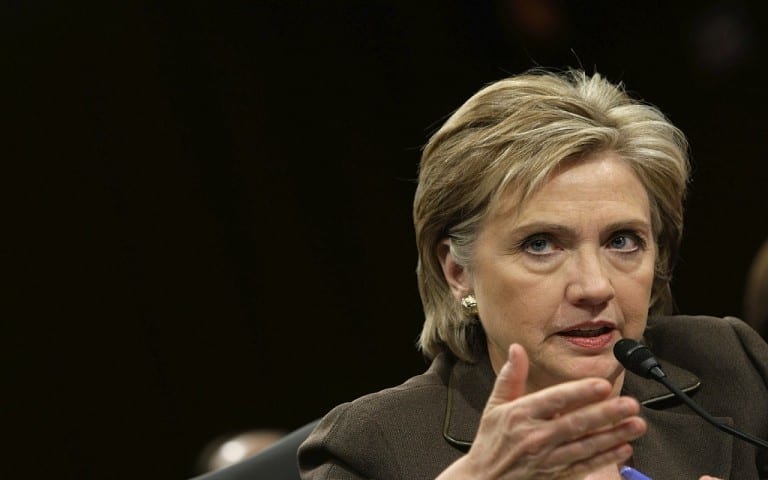

Judicial Watch: Second Federal Court Grants Discovery in Clinton Email Case


Ruling Comes in FOIA Litigation over Benghazi Controversy
(Washington, DC) – Judicial Watch announced today that U.S. District Court Judge Royce Lamberth granted “limited discovery” to Judicial Watch into former Secretary of State Hillary Clinton’s email matter. Lamberth ruled that “where there is evidence of government wrong-doing and bad faith, as here, limited discovery is appropriate, even though it is exceedingly rare in FOIA cases.”
The court’s ruling comes in a July 2014 Freedom of Information (FOIA) lawsuit seeking records related to the drafting and use of the Benghazi talking points (Judicial Watch v. U.S. Department of State (No. 1:14-cv-01242)). The lawsuit seeks records specifically from Hillary Clinton and her top State Department staff:
Copies of any updates and/or talking points given to Ambassador Rice by the White House or any federal agency concerning, regarding, or related to the September 11, 2012 attack on the U.S. consulate in Benghazi, Libya.
Any and all records or communications concerning, regarding, or relating to talking points or updates on the Benghazi attack given to Ambassador Rice by the White House or any federal agency
Judge Lamberth granted Judicial Watch’s Motion for Discovery, which was filed in opposition to the State Department’s Motion for Summary Judgement. The court ruled:
An understanding of the facts and circumstances surrounding Secretary Clinton’s extraordinary and exclusive use of her “clintonemail.com” account to conduct official government business, as well as other officials’ use of this account and their own personal e-mail accounts to conduct official government business is required before the Court can determine whether the search conducted here reasonably produced all responsive documents. Plaintiff is certainly entitled to dispute the State Department’s position that it has no obligation to produce these documents because it did not “possess” or “control” them at the time the FOIA request was made. The State Department’s willingness to now search documents voluntarily turned over to the Department by Secretary Clinton and other officials hardly transforms such a search into an “adequate” or “reasonable” one. Plaintiff is not relying on “speculation” or “surmise” as the State Department claims. Plaintiff is relying on constantly shifting admissions by the Government and the former government officials. Whether the State Department’s actions will ultimately be determined by the Court to not be “acting in good faith” remains to be seen at this time, but plaintiff is clearly entitled to discovery and a record before this Court rules on that issue.
The Court must observe that the Government argues in its opposition memorandum that “the fact that State did not note that it had not searched Secretary Clinton’s e-mails when it responded to Plaintiffs FOIA request … was neither a misrepresentation nor material omission, because these documents were not in its possession and control when the original search was completed.” The Government argues that this does not show a lack of good faith, but that is what remains to be seen, and the factual record must be developed appropriately in order for this Court to make that determination.
Today’s ruling refers to U.S. District Court Emmett Sullivan’s decision to grant Judicial Watch discovery on the Clinton email matter in separate litigation:
Briefing is ongoing before Judge Sullivan. When Judge Sullivan issues a discovery order, the plaintiff shall — within ten days thereafter–file its specific proposed order detailing what additional proposed discovery, tailored to this case, it seeks to have this Court order. Defendant shall respond ten days after plaintiff’s submission.
Judge Sullivan is expected to rule on Judicial Watch’s discovery plan after April 15. Judicial Watch’s discovery plan seeks the testimony of eight current and former State Department officials, including top State Department official Patrick Kennedy, former State IT employee Bryan Pagliano, and Clinton’s two top aides at the State Department: Cheryl Mills and Huma Abedin.
“This remarkable decision will allow Judicial Watch to explore the shifting stories and misrepresentations made by the Obama State Department and its current and former employees,” stated Judicial Watch President Tom Fitton. “This Benghazi litigation first uncovered the Clinton email scandal, so it is good to have discovery in this lawsuit which may help the American people find out why our efforts to get Benghazi answers was thwarted by Clinton’s email games.”
###















